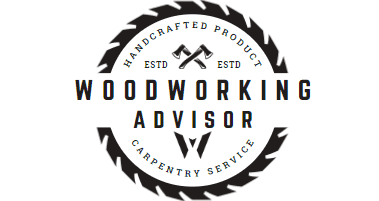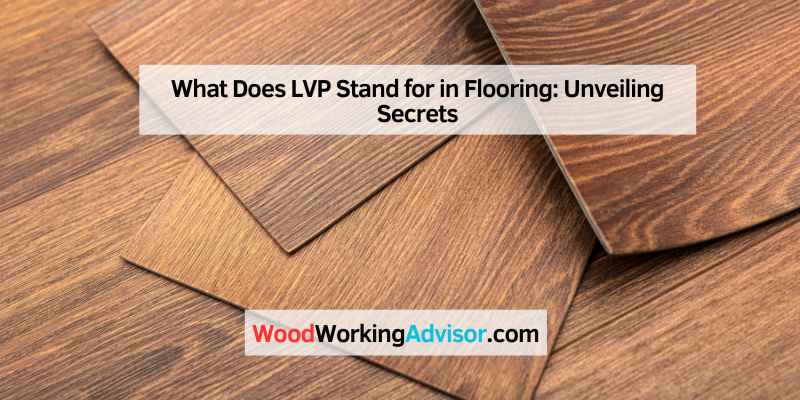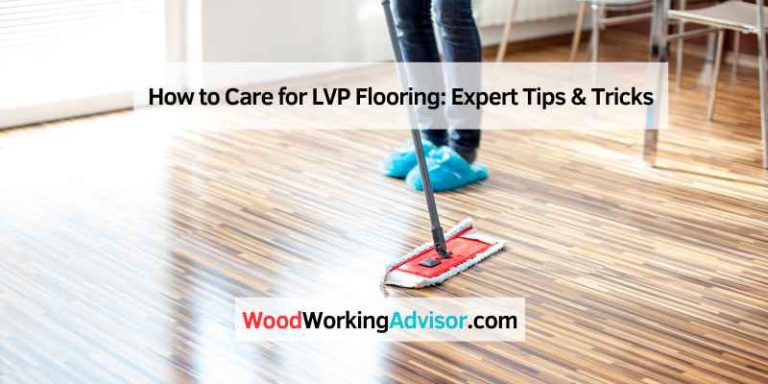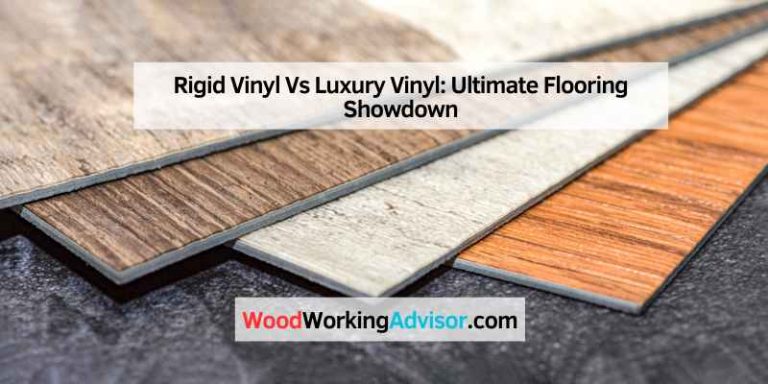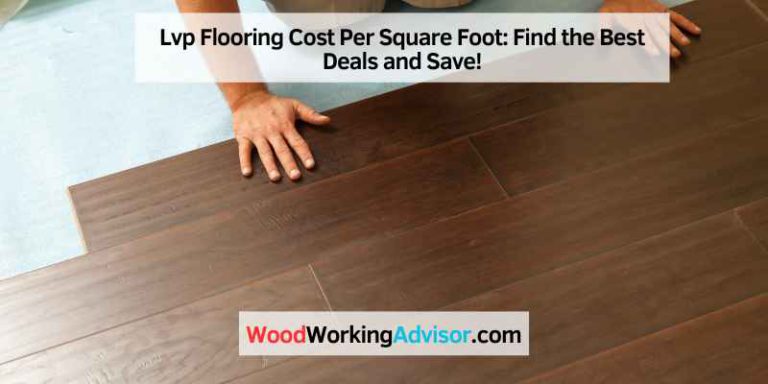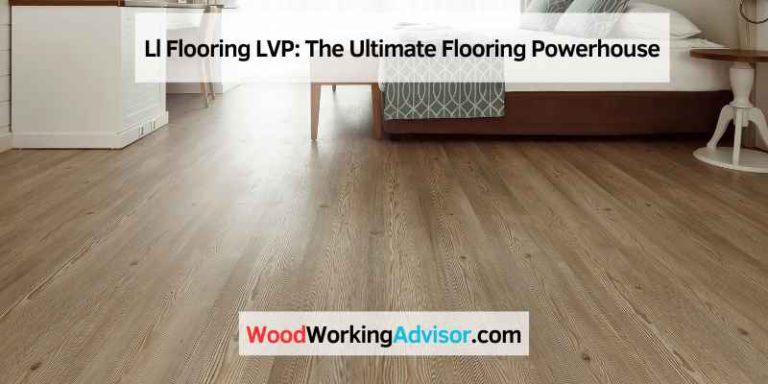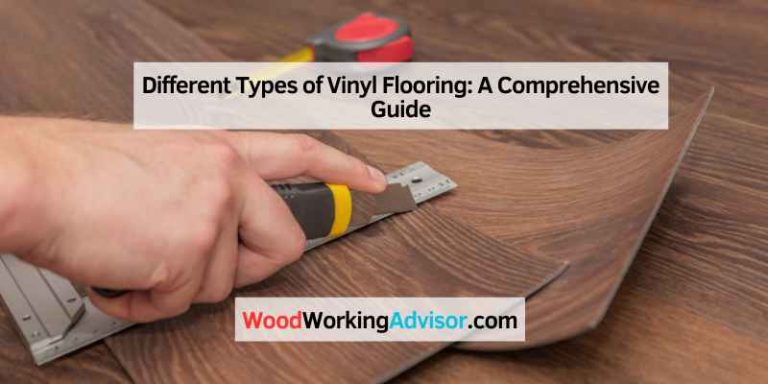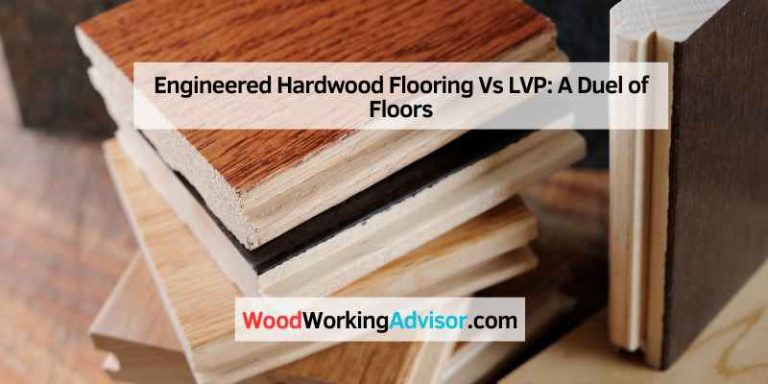What Does LVP Stand for in Flooring: Unveiling Secrets
LVP stands for Luxury Vinyl Plank in flooring. It provides the look of wood with vinyl benefits.
When it comes to choosing the right flooring for your home, understanding the acronyms used in the industry is essential. One such term you may come across is LVP, which stands for Luxury Vinyl Plank. This type of flooring has gained popularity for its durability, water resistance, and ease of maintenance.
LVP offers the aesthetic appeal of wood flooring while being more affordable and easier to install. If you are considering upgrading your floors, exploring the world of LVP could be a game-changer for your home. Let’s delve deeper into what LVP flooring entails and why it might be the perfect choice for your living space.
The Basics Of Lvp Flooring
Luxury Vinyl Plank (LVP) flooring is a versatile and popular choice for homes and businesses. LVP stands for luxury vinyl plank, offering a durable and waterproof wood-look flooring option.
Composition Of Lvp
LVP stands for Luxury Vinyl Plank, which is a flooring material that is designed to look like real hardwood flooring. The composition of LVP is typically made up of several layers of materials that are fused together to create a durable and long-lasting floor.
The top layer of LVP is a wear layer that is designed to protect the floor from scratches, scuffs, and other types of wear and tear. This wear layer is typically made up of a clear or colored coating that is applied to the surface of the flooring material.
Beneath the wear layer, there is a printed layer that is designed to look like real hardwood flooring. This printed layer is created using high-resolution images of real wood, which are then printed onto the surface of the flooring material.
Beneath the printed layer, there is a core layer that is made up of PVC vinyl. This core layer provides the LVP with its durability and water resistance.
Finally, there is a backing layer that is designed to provide additional stability and support to the flooring material.
Installation Process
The installation process for LVP flooring is typically quite simple and straightforward. In most cases, the flooring material is designed to be installed as a floating floor, which means that it is not attached directly to the subfloor.
To install LVP flooring, you will first need to prepare the subfloor by making sure that it is clean, dry, and level. Once the subfloor is prepared, you can then begin laying out the flooring material.
LVP flooring is typically installed using a tongue-and-groove system, which allows the individual planks to snap together tightly. This system helps to ensure that the floor is stable and secure.
Once the flooring material is installed, you can then add finishing touches such as baseboards and trim to complete the look of your new flooring.
Overall, LVP flooring is a great option for homeowners who are looking for a durable, affordable, and easy-to-install flooring material that is designed to look like real hardwood flooring. With its many benefits, it’s no wonder that LVP flooring has become such a popular choice for homeowners all over the world.
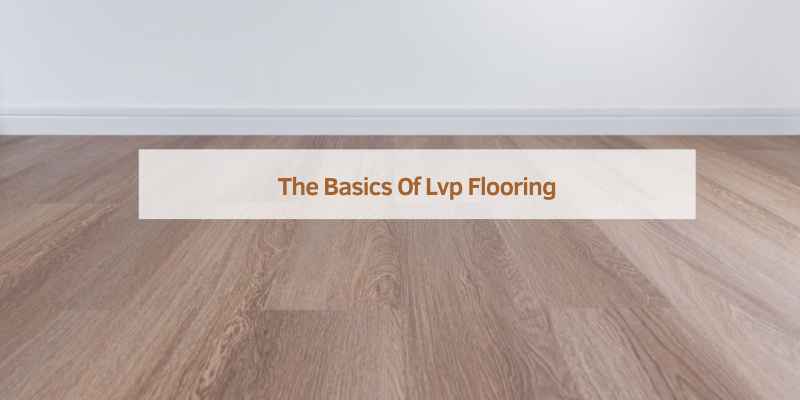
Comparing Lvp With Other Flooring
When choosing flooring for your home or commercial space, it’s essential to weigh the options and understand the differences. Let’s compare Luxury Vinyl Plank (LVP) with other popular flooring types to help you make an informed decision.
Lvp Vs Laminate
When it comes to LVP vs laminate flooring, there are several key differences to consider:
| Aspect | LVP | Laminate |
|---|---|---|
| Durability | Scratch-resistant, waterproof | Prone to scratches, not waterproof |
| Maintenance | Easy to maintain | Requires more delicate care |
| Installation | Simple installation process | May require professional installation |
Lvp Vs Lvt
Comparing LVP with Luxury Vinyl Tile (LVT) reveals the following distinctions:
- Appearance: LVT often mimics natural stone or ceramic tile, while LVP resembles hardwood.
- Water Resistance: LVP is fully waterproof, whereas LVT may not be suitable for wet areas.
- Comfort: LVP offers a softer and warmer feel underfoot compared to LVT.
Lvp Vs Evp
When considering Engineered Vinyl Plank (EVP) in comparison to LVP, it’s important to note that both share similar attributes such as:
- Waterproof properties
- Easy maintenance
- Durability
However, EVP may have a more rigid core, offering enhanced stability, while LVP provides a wider variety of design options.
Advantages Of Choosing Lvp
When it comes to flooring options, LVP stands for Luxury Vinyl Plank. This type of flooring has gained popularity in recent years due to its numerous advantages. If you’re considering LVP for your home or commercial space, here are some key benefits to keep in mind:
Durability Factors
LVP is known for its exceptional durability, making it a great choice for high-traffic areas. Its strong wear layer protects against scratches, dents, and stains, ensuring that your flooring looks pristine for years to come. Whether you have kids, pets, or heavy furniture, LVP can withstand the daily wear and tear.
Additionally, LVP is designed to handle temperature fluctuations without warping or expanding, making it suitable for areas with varying climate conditions. This durability factor allows you to install LVP in any room, including bathrooms, kitchens, and basements.
Maintenance And Care
One of the major advantages of LVP is its low maintenance requirements. Unlike hardwood or laminate flooring, LVP doesn’t require extensive upkeep. Regular sweeping or vacuuming, along with occasional damp mopping, is usually sufficient to keep your LVP floors clean and looking their best.
Moreover, LVP is resistant to stains and spills, thanks to its water-resistant properties. This makes it an ideal choice for households with children or pets, as accidents can easily be wiped away without leaving any lasting damage. With LVP, you can spend less time worrying about maintenance and more time enjoying your beautiful floors.
Waterproof Features
One of the standout features of LVP is its waterproof nature. Unlike traditional hardwood flooring, LVP can withstand moisture and spills without warping or swelling. This makes it perfect for areas prone to moisture, such as bathrooms, laundry rooms, and basements.
With LVP, you no longer have to worry about water damage or mold growth. Its waterproof properties provide peace of mind, especially in areas where spills or leaks are more likely to occur. Whether you have a busy household or want to create a worry-free commercial space, LVP is an excellent choice.
In conclusion, LVP offers several advantages that make it a popular choice for homeowners and business owners alike. Its durability, low maintenance requirements, and waterproof features make it a practical and stylish flooring option. Consider LVP for your next flooring project and enjoy the benefits it has to offer.
Potential Drawbacks
LVP, or Luxury Vinyl Plank, offers many benefits, but there are some potential drawbacks to consider. It is scratch-resistant, but may be vulnerable to denting and tearing over time, especially from heavy objects. Additionally, while it is waterproof, it may not be flood-proof, requiring replacement after prolonged exposure to standing water.
Vulnerability To Denting
One of the potential drawbacks of LVP flooring is its vulnerability to denting. Although LVP is generally considered to be a highly durable flooring option, it may not be able to withstand heavy furniture or appliances being dragged across its surface. Furthermore, dropping heavy objects like pots and pans or tools may cause dents on the flooring. However, you can minimize the risk of denting by placing protective pads under furniture legs and using caution when moving heavy objects.
Scratch And Scuff Resistance
Another potential drawback of LVP flooring is its susceptibility to scratches and scuffs. Although LVP is resistant to scratches from pets’ claws and high heels, it may still scratch when exposed to sharp objects like knives or other tools. Additionally, while LVP is scuff-resistant, it may still show marks from shoes or other objects that are dragged across its surface. However, regular maintenance and cleaning can help prevent scratches and scuffs, and using furniture pads and being cautious when moving objects can also help protect the flooring.
Overall, while LVP flooring is a durable and stylish option for your home, it is not completely immune to damage. Understanding its potential drawbacks, such as vulnerability to denting and susceptibility to scratches and scuffs, can help you make an informed decision about whether LVP flooring is the right choice for your home.
Design And Aesthetic Appeal
When it comes to choosing flooring for your space, the design and aesthetic appeal play a crucial role in creating the desired ambiance. The right flooring can enhance the overall look and feel of a room, and Luxury Vinyl Plank (LVP) flooring is known for its exceptional design and aesthetic versatility.
Wood-look Aesthetics
LVP flooring offers a stunning wood-look aesthetic that adds warmth and natural beauty to any space. The advanced printing and texturing technologies used in LVP manufacturing create remarkably realistic wood grain patterns and textures, providing the elegance of hardwood floors without the maintenance requirements.
Array Of Design Choices
One of the key advantages of LVP flooring is the vast array of design choices available. From classic oak and maple to contemporary grey and whitewashed finishes, there is a design to complement every interior style. Additionally, LVP comes in various plank sizes and can mimic the look of exotic hardwoods, allowing for endless design possibilities.
Economic Considerations
LVP stands for Luxury Vinyl Plank, a popular and versatile flooring option for homes and businesses. It offers a wood-look product with characteristics of hardwood, easy installation, and waterproof features, making it a cost-effective and durable choice for flooring solutions.
Cost-effectiveness
When considering flooring options, cost-effectiveness is a crucial factor. Luxury Vinyl Plank (LVP) stands for a popular choice due to its affordability and long-term cost savings. The initial installation cost of LVP is relatively lower than traditional hardwood flooring, making it an attractive option for budget-conscious homeowners.
Moreover, the durability and low maintenance requirements of LVP contribute to its cost-effectiveness. Its resistance to wear and tear means fewer replacement and repair costs over time, resulting in significant long-term savings.
Comparison With Other Flooring Costs
Compared to other flooring options such as hardwood, ceramic tile, or laminate, LVP offers a competitive advantage in terms of cost. The table below provides a simplified comparison of the initial costs and long-term expenses associated with different flooring materials.
| Flooring Type | Initial Cost | Long-Term Expenses |
|---|---|---|
| Hardwood | High | Moderate |
| Ceramic Tile | Moderate | High |
| Laminate | Moderate | Moderate |
| LVP | Low | Low |
As evident from the comparison, LVP flooring emerges as a cost-effective choice with low initial costs and minimal long-term expenses, making it a practical and economical investment for homeowners.
Final Thoughts
LVP stands for luxury vinyl plank flooring, a highly popular and versatile flooring option for both homes and businesses. When compared to laminate flooring, LVP is more scratch-resistant, making it a better choice for pet owners. However, LVP is more vulnerable to denting and tearing.
Overall, LVP is a durable and easy to maintain flooring option.
Choosing The Right Flooring Option
When selecting flooring, consider the durability and maintenance ease of LVP compared to other options.
Future Trends In Lvp Flooring
The future of LVP flooring looks promising with advancements in technology and design, offering more realistic textures and colors.
When deciding on flooring, prioritize factors like durability and maintenance. LVP’s evolving trends indicate a bright future for this versatile flooring option.
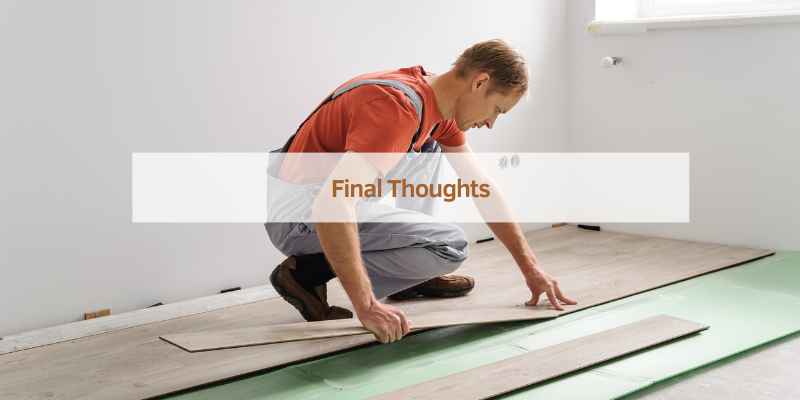
Frequently Asked Questions
Is Lvp Better Than Laminate?
LVP (Luxury Vinyl Plank) is generally considered better than laminate flooring. While both are durable, laminate is prone to scratches and chipped corners over time. LVP is scratch-resistant, but more vulnerable to denting and tearing. LVT (Luxury Vinyl Tile) is ideal for those on a budget, while LVP is slightly easier to maintain.
Both options are easy to install and available in various designs.
Which Is Better, Lvt Or Lvp?
LVP is better for pets due to scratch resistance, while LVT is ideal for budget-conscious individuals. Both are easy to install and maintain, with a wide range of designs available.
What Is The Downside Of Lvp Flooring?
The downside of LVP flooring is that it may dent and scratch over time, especially from heavy objects like appliances and furniture. While it is waterproof, prolonged exposure to standing water or flooding can still cause damage. Additionally, LVT/LVP is more vulnerable to denting and tearing compared to laminate flooring.
Is Lvp Really Waterproof?
Yes, LVP is waterproof, making it ideal for areas prone to moisture. However, extended exposure to flooding may require replacement.
Conclusion
LVP stands for Luxury Vinyl Plank flooring, which is a popular and versatile option for both homes and businesses. When compared to laminate flooring, LVP offers several advantages, such as being more resistant to scratches and moisture. However, it is important to note that LVP can still dent or scratch under heavy objects.
Overall, LVP is a durable and easy-to-maintain flooring choice that can mimic the look of hardwood floors while providing the benefits of vinyl.
